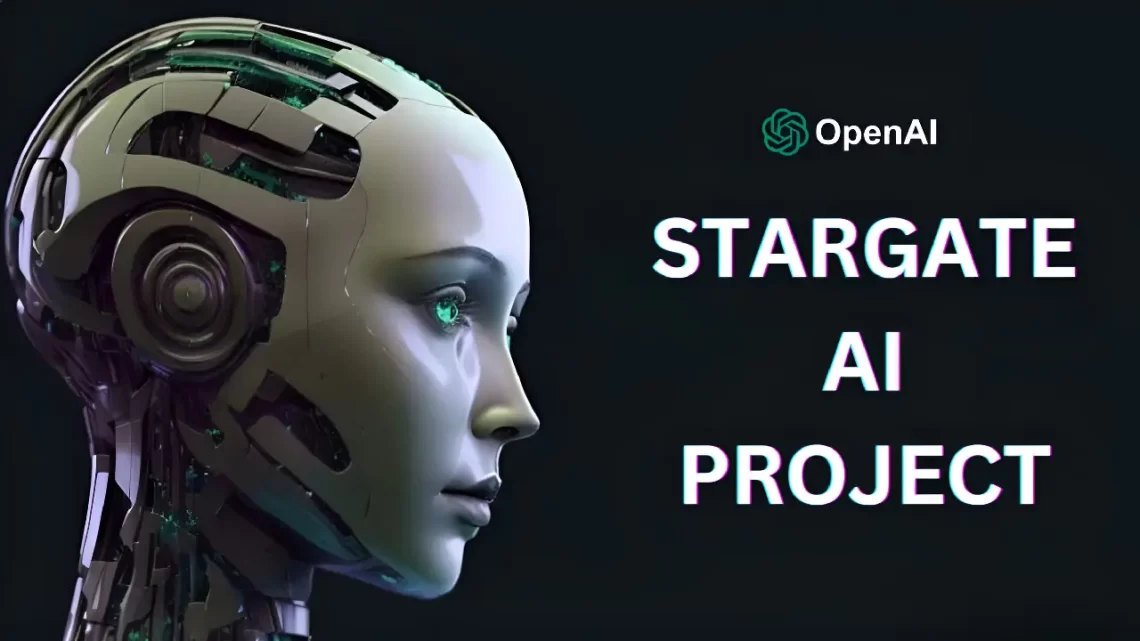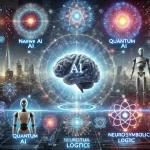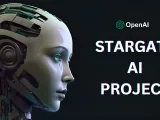
The Stargate Project: AI’s Healthcare Revolution and the New Space Race of the 21st Century”
January 23, 2025Introduction: A Modern-Day Moonshot
The Stargate Project, a $500 billion AI infrastructure initiative backed by tech titans like OpenAI, Microsoft, and NVIDIA, isn’t just about economic dominance—it’s a 21st-century moonshot poised to redefine healthcare. Like the 1960s Space Race, which transformed technology and geopolitics, Stargate represents a strategic sprint to secure AI supremacy. But beyond national pride, its true legacy may lie in revolutionizing medicine, curing diseases, and democratizing healthcare access.
The Stargate Project: Fueling the AI Healthcare Revolution
Stargate’s unprecedented investment in supercomputing power and AGI (artificial general intelligence) will act as a catalyst for breakthroughs in healthcare. Here’s how:
- Precision Medicine at Scale
AI models trained on Stargate’s infrastructure will analyze genomic data, lifestyle patterns, and environmental factors to create hyper-personalized treatment plans. Imagine algorithms predicting an individual’s risk of diabetes years in advance or designing cancer therapies tailored to a patient’s unique genetic profile. This shift from reactive to proactive care could slash healthcare costs and extend lifespans. - Cancer’s Nemesis: AI-Driven Drug Discovery
Traditional drug development takes decades and billions of dollars. Stargate’s AGI could simulate molecular interactions to identify promising compounds in weeks. For example, AI could design drugs targeting “undruggable” cancer proteins or predict immunotherapy responses, turning terminal diagnoses into manageable conditions. Projects like AlphaFold have already shown AI’s potential in protein folding—Stargate’s resources could accelerate such discoveries tenfold. - Diagnostic Precision Beyond Human Limits
Stargate-powered AI could analyze medical imaging (MRI, CT scans) with superhuman accuracy, detecting tumors at Stage 0 or identifying rare diseases from subtle biomarkers. In rural areas with limited specialists, this could democratize access to world-class diagnostics, bridging global healthcare inequities. - Predictive Care and EHR Revolution
Electronic Health Records (EHRs) are often fragmented and underutilized. AI could integrate these siloed datasets to predict outbreaks, hospital readmissions, or sepsis risks in real time. For instance, an AI monitoring EHRs might flag a diabetic patient’s risk of kidney failure months earlier than traditional methods, enabling preemptive intervention.
The Space Race Parallels: Why Stargate Matters
The Stargate Project echoes the urgency and ambition of the Cold War-era Space Race, but with higher stakes:
- Geopolitical Rivalry: Just as the U.S. and USSR vied for space dominance, Stargate positions America against China and the EU in the AI arms race. Leadership in AI could dictate economic and military power for decades.
- Technological Spillover: The Space Race gave us GPS, satellite communications, and materials science. Similarly, Stargate’s AI innovations may yield spin-offs like quantum computing breakthroughs, advanced robotics for surgery, or climate modeling tools to track disease vectors.
- National Mobilization: Like NASA’s Apollo program, Stargate unites government, academia, and corporate giants (Oracle, NVIDIA, SoftBank) in a shared mission. This collaboration mirrors the public-private partnerships that built the International Space Station.
However, unlike the Space Race—focused on a single goal (landing on the Moon)—Stargate’s impact will be diffuse, touching every facet of society. Its success hinges not just on raw compute power but on ethical governance to ensure AI benefits all humanity, not just a privileged few.
Challenges: Navigating the Final Frontier
While Stargate’s potential is staggering, it faces hurdles reminiscent of the Space Race’s risks:
- Ethical Quandaries: Who owns AI-generated medical insights? How do we prevent bias in algorithms trained on skewed datasets?
- Environmental Cost: Stargate’s data centers may consume energy rivaling small nations. Sustainable innovation is critical.
- Equity: Will AI-driven healthcare remain a luxury for wealthy nations, or will Stargate prioritize global access?
Conclusion: A Giant Leap for Healthcare
The Stargate Project isn’t just another tech initiative—it’s a defining moment in human history. By channeling the competitive spirit of the Space Race into AI, it promises to unlock cures for diseases that have plagued humanity for millennia, democratize medical expertise, and redefine longevity. Yet, its legacy will depend on balancing ambition with empathy, ensuring that the AI revolution uplifts, rather than divides, our world. As construction begins in Texas, one thing is clear: the future of healthcare is being written in code, and Stargate holds the pen.

















